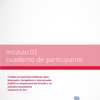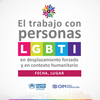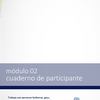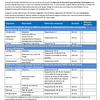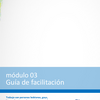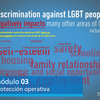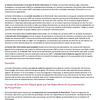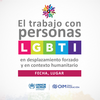LGBTI
Working with LGBTI persons
Due to the discrimination and abuse they experience, many LGBTI people flee their home countries and seek protection abroad. The multiple vulnerabilities that LGBTI refugees and internally displaced persons may face in all stages of the displacement cycle is a serious protection concern for UNHCR and partners. LGBTI people face threats, challenges and barriers, and are often exposed to discrimination, abuse, prejudice, and violence due to their sex, sexual orientation, and/or gender identity. This is often severely compounded in situations of displacement, where the nature of the discrimination they encounter can be particularly virulent, their isolation from family and community profound, and the harm inflicted on them severe.
While discrimination based on sexual orientation and gender identity has been classified as prohibited by regional and international legal instruments, discrimination against individuals of diverse sexual orientation or gender identity is reportedly widespread in Latin America. In the North of Central America LGBTI people are the target of abuse, harassment, assaults and murder by gangs and other sectors of society, including by the police and other public authorities. Similarly, LGBTI persons in South America may face discrimination and violence based on their diverse sexual orientation or gender identity, including sexual and gender-based violence.
The RSSN strives to ensure that the rights of displaced LGBTI persons are met without discrimination by creating safe spaces to ensure their access to services to meet their protection needs.
Additional resources
- UNHCR, Guidelines on International Protection No. 9: Claims to Refugee Status based on Sexual Orientation and/or Gender Identity within the context of Article 1A(2) of the 1951 Convention and/or its 1967 Protocol relating to the Status of Refugees, 23 October 2012, HCR/GIP/12/01, available at: www.refworld.org/docid/50348afc2.html
- Inter-American Court of Human Rights, Gender identity, and equality and non-discrimination with regard to same-sex couples. State obligations in relation to change of name, gender identity, and rights deriving from a relationship between same-sex couples. Advisory Opinion OC-24/17, 24 November 2017, available at (only in Spanish): www.corteidh.or.cr/docs/opiniones/seriea_24_esp.pdf
- UNHCR & IOM, LGBTI Training Package: Working with Lesbian, Gay, Bisexual, Transgender and Intersex (LGBTI) Persons in Forced Displacement and the Humanitarian Context, September 2017, available at: lgbti.iom.int/lgbti-training-package
- UNHCR, Eligibility Guidelines for Assessing the International Protection Needs of Asylum-Seekers from El Salvador, 15 March 2016, HCR/EG/SLV/16/01, available at: www.refworld.org/docid/56e706e94.html
- UNHCR, Eligibility Guidelines for Assessing the International Protection Needs of asylum-seekers from Guatemala, January 2018, HCR/EG/GTM/18/01, available at: www.refworld.org/docid/5a5e03e96.html
- UNHCR, UNHCR Eligibility Guidelines for Assessing the International Protection Needs of Asylum-Seekers from Honduras, 27 July 2016, HCR/EG/HND/16/03, available at: www.refworld.org/docid/579767434.html
- UNHCR, UNHCR Eligibility Guidelines for Assessing the International Protection Needs of Asylum-Seekers from Colombia, September 2015, HCR/EG/COL/15/1, available at: www.refworld.org/docid/560011fc4.html
- UNHCR, Protecting Persons with Diverse Sexual Orientations and Gender Identities: A Global Report on UNHCR’s Efforts to Protect Lesbian, Gay, Bisexual, Transgender, and Intersex Asylum-Seekers and Refugees, December 2015, available at: www.refworld.org/pdfid/566140454.pdf
- UNHCR, Age, Gender and Diversity Good Practices in the Americas - "One step further, the methodology behind the practice", December 2015, available at: www.refworld.org/docid/569c92be4.html

